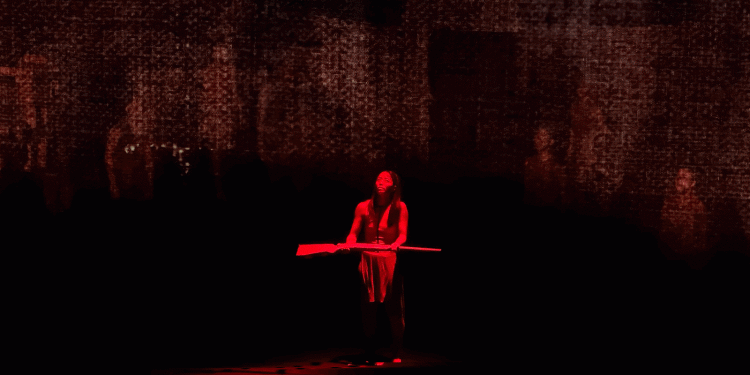Akram Khan‘s Jungle Book Reimagined, which was presented at the Kote Marjanishvili State Drama Theater in Tbilisi as part of the Tbilisi International Festival of Theater 20,24, brought a new perspective to Rudyard Kipling’s classic tale. Khan and his diverse group of international dancers reinterpret Mowgli’s journey through a contemporary lens. They frame it in the context of climate refugees. The production features stunning choreography, catchy animated characters, and a unique score. However, it also deals with the colonial narratives that are embedded in the source material.
A Colonial Legacy Under Scrutiny
Akram Khan’s reinterpretation of Kipling’s original text, which is often criticized for having colonial overtones, puts it in a precarious situation. Akram Khan’s decision to adapt Kipling’s story as well as the Disney animation raises serious questions about the implications for revisiting colonial stories. The performers are diverse, yet they are often cast as jungle animals. This challenges the expectations of representation but risks perpetuating stereotypes in the original story.
Khan’s reinterpretation introduces Mowgli as a woman, in line with feminist ideals of today. This decision, although progressive, has its own complexities. The character Kaa is reimagined to represent environmentally damaging packaging. This combines themes of feminism with climate awareness. This bold artistic choice is meant to connect the story to contemporary environmental issues. However, it risks oversimplifying complex relationships between gender, colonialism and ecological crises. The challenge is to ensure that such interpretations don’t dilute the seriousness and importance of the themes.
A Dance-Theatre Experience: Movement vs. Meaning
Jungle Book Reimagined is a dance-theatre show that showcases the physicality of its cast. They are known for their ability to perform breathtaking movements. The portrayal of animals – especially the dancers who mimic monkeys – sometimes veers towards caricature and not genuine artistic expression. The choreography is impressive but the animalistic representation does not have a cohesive narrative, which leaves audiences wondering if such portrayals are effective in conveying deeper meanings.
The performance includes spoken word elements of Kipling’s original text, but the delivery is overly dramatic and reduces the impact of the words. The score by Jocelyn Pook is a superficial attempt at evoking Indian musical traditions, even though it aims for an evocative soundtrack. Audiences may be left wanting a more authentic audio experience that matches the visual spectacle.
The dangers of superficial engagement
Jungle Book Reimagined shows how difficult it is to balance social issues with depth in an age when they are increasingly woven into artistic stories. Khan’s production is visually stunning and ambitious but sometimes flirts with superficiality in its thematic explorations. Although noble, the desire to address pressing topics like climate change and gender identities raises questions about whether these themes have been fully realized or are merely surface-level declarations that risk alienating rather than resonating.
The pressure on artists to engage in these topics as contemporary movements gain momentum can lead to the dilution their essence. Khan’s attempt at combining these modern concerns with an beloved classic creates a relevant dialogue, but also highlights potential pitfalls when appropriating historical texts without a thorough examination of their complexities.
Akram Khan’s Jungle Book Reimagined is an ambitious attempt to bridge colonial narratives with contemporary issues. The production is visually stunning and dazzling with its choreography, but it also invites scrutiny in terms of its engagement with the themes that it seeks explore. As audiences reflect on Mowgli’s journey through this reimagined perspective, they are reminded about the importance of nuance and depth in tackling complex stories–both in and out of the jungle.
Review by Ivan Nechaev
Read More @ georgiatoday.ge













